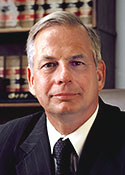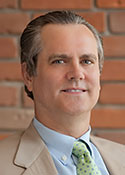Final Debate in NSM’s Energy Symposium Series to Focus on Need for Subsidies
 Renewable energy’s role in the nation’s future remains unclear, partly because whether
to provide government subsidies is still an unsettled question.
Renewable energy’s role in the nation’s future remains unclear, partly because whether
to provide government subsidies is still an unsettled question.
Subsidies have helped drive the growth of renewable energy, but they have become more controversial as concern over the federal budget continues to rise.
A March 4 debate at the University of Houston will focus on those subsidies. The debate will begin at 6:30 p.m. at the Hilton University of Houston Waldorf-Astoria Ballroom. RSVP at uhenergyseries.eventbrite.com.
This will be the last of the Energy Symposium Series debates on critical issues facing the energy industry, sponsored by the UH College of Natural Sciences and Mathematics and UH Energy.
”As the demand for energy grows worldwide, many people have called for an ‘all of the above’ energy policy, including the use of renewable energy,” said Ramanan Krishnamoorti, chief energy officer at UH. “But people remain split about whether government subsidies are appropriate or necessary for renewable energy to reach a sustainable level. This debate should clarify the arguments on each side, and offer some perspective on what is at stake as the nation’s energy policy continues to evolve.”

Green
BradleySpeakers include U.S. Rep. Gene Green, D-Houston, 29th District of Texas, and Robert
L. Bradley Jr., founder and CEO of the Institute for Energy Research.
Jimmy Glotfelty, executive vice president of Clean Line Energy, will serve as moderator.
Green has served in Congress since 1992; he is on the Energy and Commerce Committees, as well as the health, energy and power, environment and economy, and oversight and investigations subcommittees.
Bradley, whose foundation has offices in Houston and Washington, D.C., is an adjunct scholar at the Cato Institute and the Competitive Enterprise Institute. His most recent book is “Edison to Enron: Energy Markets and Political Strategies.”
Government subsidies are not the only issue people consider when gauging the viability of renewable energy, said Dan Wells, dean of the UH College of Natural Sciences and Mathematics.
“But it is a key issue raised both by those who see renewables as a potential mainstream source of future energy and those who believe that wind, solar and other forms of renewable energy are unlikely ever to play a major role in filling the world’s energy needs,” he said.
The talk, sponsored by the Houston Business Journal and Houston Public Media, is free and open to the public.
- Jeannie Kever, University Communication